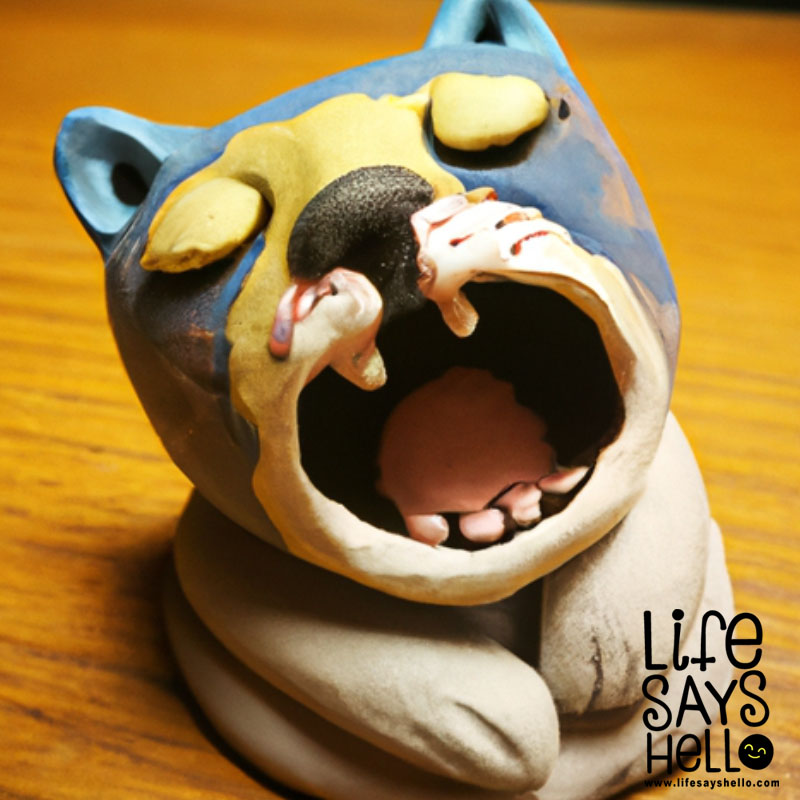Can Cats Die from Stress? Unraveling the Impact of Stress on Feline Well-being

As loving cat owners, we often wonder how stress affects our feline companions, and if left unmanaged, can it be fatal? Let's dive into the world of feline stress and learn how to keep our furry friends happy and healthy.
Cats, just like us humans, can experience stress due to various reasons. As responsible pet owners, it's essential to understand the impact of stress on our feline friends and take the necessary steps to alleviate it. In this comprehensive guide, we'll explore the science behind stress in cats, common stressors, signs that your cat may be stressed, the potential dangers of chronic stress, and tips to help your cat manage stress effectively.
The Science Behind Stress in Cats
Stress is a natural response to a perceived threat or challenging situation. It's essential for survival, as it prepares the body to take action in the face of danger. However, when stress becomes chronic, it can lead to a variety of health problems.
In cats, stress triggers the release of stress hormones, such as cortisol and adrenaline. These hormones help the body respond to threats by increasing heart rate, blood pressure, and glucose levels, among other physiological changes. While these responses are helpful in the short term, chronic stress can cause long-lasting damage to a cat's body and mind.
Common Stressors for Cats
Cats can experience stress due to a wide range of factors. Some of the most common stressors for cats include:
Changes in environment: Cats are creatures of habit and may become stressed when their environment changes. This can include moving to a new home, rearranging furniture, or even changing the type of litter in their litter box.
New family members or pets: Introducing a new family member or pet can be a significant source of stress for cats. They may feel threatened or territorial, leading to increased anxiety.
Lack of mental stimulation: Cats are intelligent animals that require mental stimulation to stay happy and healthy. Boredom can lead to stress, so it's crucial to provide your cat with toys, puzzles, and other forms of enrichment.
Inadequate socialization: Cats that haven't been properly socialized during their early development may be more prone to stress. These cats may have difficulty adapting to new situations or interacting with other animals and humans.
Signs Your Cat May Be Stressed
Recognizing the signs of stress in your cat is crucial for their well-being. Some common indicators that your cat may be experiencing stress include:
Behavioral changes: Stressed cats may exhibit changes in their behavior, such as increased aggression, hiding, or excessive grooming.
Physical symptoms: Stress can manifest physically in cats, leading to symptoms like vomiting, diarrhea, weight loss, or a dull coat.
Changes in eating or elimination habits: A stressed cat may eat more or less than usual or have changes in their litter box habits, such as eliminating outside the box or increased frequency.
If you notice any of these signs in your cat, it's essential to address the underlying cause of their stress and consult with a veterinarian if necessary.
The Potential Dangers of Chronic Stress in Cats
Chronic stress can have severe consequences for a cat's health. Some of the long-term effects of stress in cats include:
Weakened immune system: Prolonged stress can weaken a cat's immune system, making it more susceptible to illness and infection.
Increased risk of illness and infection: Stressed cats are more prone to developing health issues, such as urinary tract infections, respiratory infections, and gastrointestinal problems.
Behavioral issues: Chronic stress can lead to behavioral problems, including aggression, excessive grooming, and destructive habits.
Can stress be directly linked to death in cats? While stress itself may not be directly fatal, the health issues resulting from chronic stress can ultimately lead to a cat's demise. It's essential to address and manage your cat's stress to ensure their overall well-being.
How to Help Your Cat Manage Stress
Helping your cat manage stress effectively is crucial for their health and happiness. Here are some tips to reduce stress in your cat's life:
Provide a consistent routine: Cats thrive on routine, so try to maintain a consistent schedule for feeding, playtime, and other activities.
Ensure a safe and comfortable environment: Make sure your cat has a safe, quiet space where they can retreat when they feel stressed or overwhelmed. Provide comfortable bedding, hiding spots, and perches for them to feel secure.
Enrichment activities and toys: Keep your cat mentally stimulated with toys, puzzles, and interactive games. Regular playtime can help reduce stress and strengthen the bond between you and your cat.
Proper socialization with other animals and humans: Gradually introduce your cat to new people and animals, allowing them to adjust at their own pace. Positive experiences with other living beings can help reduce stress and anxiety.
The Importance of Veterinary Care for Stressed Cats
Regular veterinary care plays a crucial role in managing stress-related health issues in cats. It's essential to schedule routine check-ups and consult with your veterinarian if you notice any signs of stress or changes in your cat's behavior.
Your veterinarian can help identify the underlying cause of your cat's stress and recommend appropriate treatments or interventions. In some cases, medication or behavioral therapy may be necessary to help your cat cope with stress more effectively.
Conclusion
Understanding the impact of stress on your cat's health and well-being is vital for ensuring a happy, stress-free life for your feline friend. By recognizing the signs of stress, addressing common stressors, and implementing stress-reduction strategies, you can help your cat live a healthier, more content life. Don't hesitate to seek professional help from your veterinarian if you're concerned about your cat's stress levels – their expertise and guidance can make all the difference in your cat's well-being.




Comments